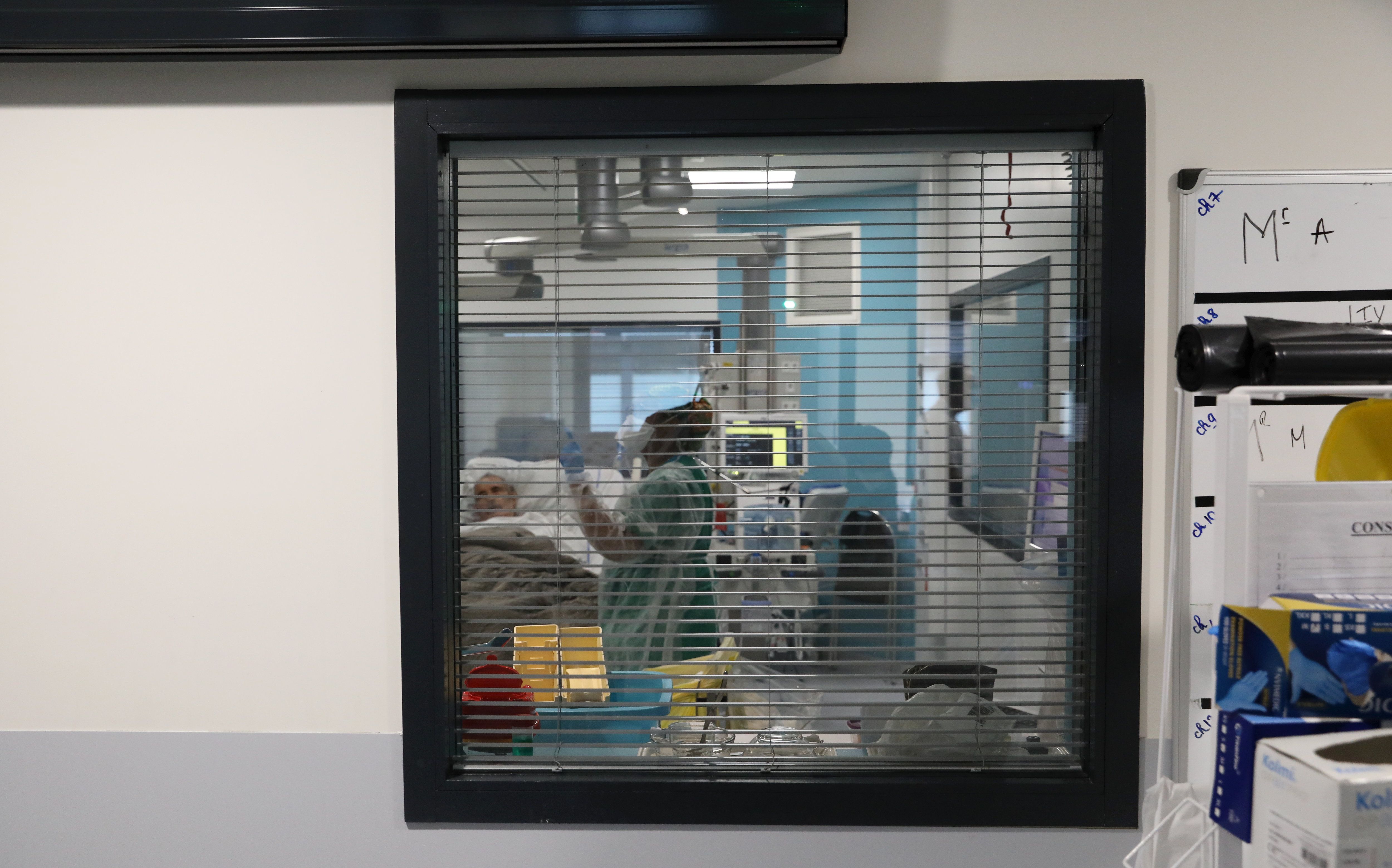“The profile has evolved.
There is a rejuvenation of patients, we also see it on intensive care admissions.
It is not just a problem of our older citizens.
"Olivier Guérin may be a geriatrician, it is from him that this warning comes on Monday.
The head of the department at the Nice University Hospital was speaking at the press conference during which the prefect of the Alpes-Maritimes announced new restrictive measures, including weekend confinement on the coast, to deal with the Covid-19 epidemic.
Other doctors share this impression of having to take care of a larger proportion of younger people, whether in intensive care or conventional hospitalization.
“We've seen it for about three weeks.
Half of our patients are under 65 years old, while the median age was rather around 70 years earlier, ”Carole Ichai told Parisian.
The resuscitation service at the CHU de Nice, which she heads, currently receives around thirty Covid patients.
"Especially 50-60 year olds"
“Yes, it's getting a bit younger.
These are mostly 50-60 year olds but we also have younger ones, ”adds Professor Emmanuel de la Coussaye, head of emergencies at the Nîmes University Hospital.
In his hospital, 140 out of 950 beds are occupied by patients diagnosed with Covid-19 positive.
In the intensive care unit, the occupancy rate climbs to 52%.
The figures prove them rather right.
In Provence Alpes Côte d'Azur, in a month and a half, the proportion of patients aged at least 70 years old in intensive care has increased from 52 to 40%.
Conversely, those under 60 represented, on February 22, 24% of patients versus 13% on January 4.
Nationally, among all hospitalized patients (including those in rehabilitation care), the proportion of those aged at least 70 has fallen by nearly five points since the beginning of January.
Those under 60 now represent nearly 15%, against nearly 11% a month and a half earlier.
Looseness in the younger age groups?
The doctors questioned put forward several hypotheses to explain these differences, without having any certainty at this time.
“On the one hand, maybe the elderly have become aware of this disease and are paying more attention.
On the other hand, as we were not confined this time, the assets continued to work and to have contacts, ”says Marc Leone, head of the anesthesia and intensive care unit at the North Hospital of Marseille.
Who says more chances of being infected also says more risk of being hospitalized.
"Seeing the streets of Nice, I have the impression that people of 50 or 60 were probably more careful before," adds Carole Ichai.
READ ALSO>
Covid-19: would there already be the first effects of vaccination on the epidemic in France?
We could also think of a possible effect of vaccination.
As of February 22, more than a quarter of people aged 80 and over had received at least one dose, and more than 10% had received two injections.
If the vaccines could already have made it possible to limit the transmission of the virus and therefore the contaminations in these elderly people, "it is too early" to affirm that this has also had a major impact on hospitalizations, nuance Marc Leone.
"We are at the end of the chain, so a priori vaccination has not yet had a big impact on the situation in the hospital", adds Emmanuel de la Coussaye.
The fear of the "British" variant
There remains the hypothesis of a link with the so-called “British” variant, estimated between 30 and 70% more contagious.
According to the latest “screening” data communicated by Public Health France on Thursday, February 18, its proportion among positive tests is less than 30% in each of the age categories above 70 years, against 37% in all of population.
"Perhaps this variant has a slightly more marked specificity for a younger population, not necessarily because it attacks them more easily by nature but rather because they have more social contacts", advances Carole Ichai .
British scientists have also estimated that this variant could lead to more serious forms.
But, to date, nothing in the scientific literature allows to establish it.
"Some epidemiological studies suggest a higher mortality associated with this variant, but these results need to be confirmed by other studies", summarizes Public Health France.
"We hear a lot of information but we have to be very careful because this debate is far from being resolved," insists Olivier Bouchaud, the head of the infectious disease department at the Avicenne hospital in Bobigny.

